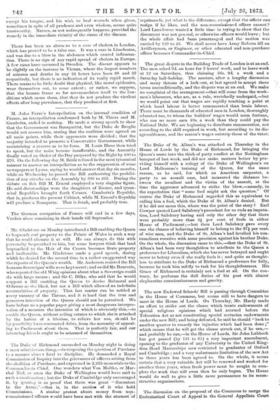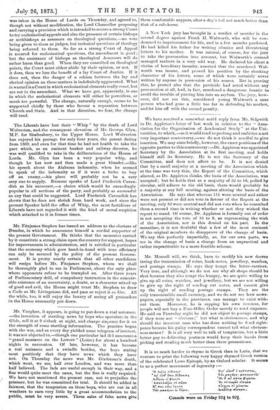The discussion on the proposal of the Commons to merge
the Ecclesiastical Court of Appeal in the General Appellate Court was taken in the House of Lords on Thursday, and agreed to, though not without modification, the Lord Chancellor proposing and carrying a provision which is intended to secure a strong Court to try ecclesiastical appeals and also the presence of certain bishops or archbishops as assessors on theological questions,—no vote being given to them as judges, but technical questions of theology being referred to them. So far as a strong Court of Appeal is secured for ecclesiastical questions, the amendment is good ; but the assistance of bishops as theological Assessors will do rather harm than good. When they are consulted on theological points, the Court must either abide by their opinion, or not. If it does, then we lose the benefit of a lay Court of Justice. If it does not, then the danger of a schism between the lay and clerical opinion on these matters is indefinitely aggravated. What As wanted is a Court in which ecclesiastical elements really count, but are not in the ascendant. What we have got, apparently, is one in which the ecclesiastical elements will either be powerless, or much too, powerful. The change, naturally enough, seems to be supported chiefly by those who favour a separation between Church and State. And in that direction, we fear, the change will tend.



































 Previous page
Previous page